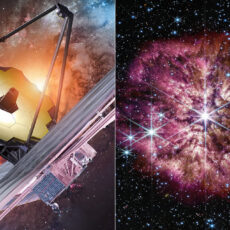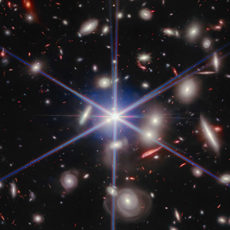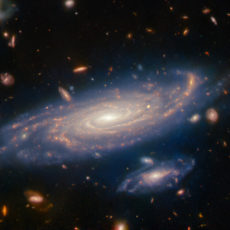
NASA / ESA’s James Webb Space Telescope captured an amazing image of a barred spiral galaxy, classified as NGC 5068, located 17 million light-years from Earth in the constellation Virgo. At the center of this galaxy lies a supermassive black hole whose mass controls the velocity dispersion of the inner stars, while the bar in the bulge signifies that it has reached its full maturity.
Barred spiral galaxies typically are around 2 billion years old, with the bulge being the oldest and the arms of the galaxy the youngest. Two of Webb’s instruments, the MIRI and NIRCam, enabled astronomers to peer through the massive dust clouds in NGC 5068 and capture the processes of star formation as they occurred. This image combines the capabilities of these two instruments to give us a truly mesmerizing look at NGC 5068’s composition.
- THE PERFECT ALL-IN-ONE TELESCOPE KIT: Travel Scope DX features fully-coated glass optics, a potent 70mm objective lens, a full-height tripod, a...
- POWERFUL EYEPIECES FOR UP-CLOSE VIEWING: Our telescope for astronomy beginners is equipped with two high-quality eyepieces (20mm and 10mm) that...
- LARGE 70MM OBJECTIVE LENS: This refractor telescope features a large, 70mm aperture objective lens that provides brighter, more detailed views...

With its ability to peer through the gas and dust enshrouding newborn stars, Webb is the perfect telescope to explore the processes governing star formation. Stars and planetary systems are born amongst swirling clouds of gas and dust that are opaque to observations in visible light, like many from Hubble or the VLT,” said the ESA.







